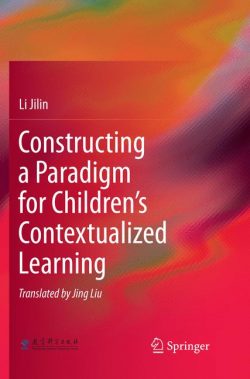Already the focus of much interest for 50 years, the study of foreign language learning anxiety (FLLA) still remains a popular research topic among scholars in Western countries. FLLA is believed to be an important cause of students’ “dumb English”. Considering the paucity of monographs on FLLA in China, this book represents an important step towards filling this gap. The author uses his PhD dissertation as a foundation for reviewing and discussing previous literature, as well as the current status of and major issues concerning FLLA worldwide. The book explores FLLA in China by using innovative triangulated research methodology, combining both quantitative and qualitative methods, namely surveys, focused interviews, and classroom observations. It also highlights the significance and implications of the research results and predicts the future of global FLLA research with a particular focus on China. Readers will discover the latest developments and issues concerning FLLA, causes of FLLA, and verified, effective strategies for alleviating such anxiety.
1.2.4 Foreign language speaking anxiety (FLSA)
Dr. Deyuan He is now an Assistant Professor at Universiti Brunei Darussalam. He learnt and taught in mainland China and Hong Kong before relocating to Brunei. He was awarded various scholarships and awards, such as the Best Paper Award received in the 2010 International College Teaching and Learning Conference. His research interests include Second Language Acquisition, World Englishes, and EFL/ESL Teaching and Learning. He has published his works in journals like TESOL Quarterly, Educational Studies, and World Englishes. Already the focus of much interest for 50 years, the study of foreign language learning anxiety (FLLA) still remains a popular research topic among scholars in Western countries. FLLA is believed to be an important cause of students’ “dumb English”. Considering the paucity of monographs on FLLA in China, this book represents an important step towards filling this gap. The author uses his PhD dissertation as a foundation for reviewing and discussing previous literature, as well as the current status of and major issues concerning FLLA worldwide. The book explores FLLA in China by using innovative triangulated research methodology, combining both quantitative and qualitative methods, namely surveys, focused interviews, and classroom observations. It also highlights the significance and implications of the research results and predicts the future of global FLLA research with a particular focus on China. Readers will discover the latest developments and issues concerning FLLA, causes of FLLA, and verified, effective strategies for alleviating such anxiety.




